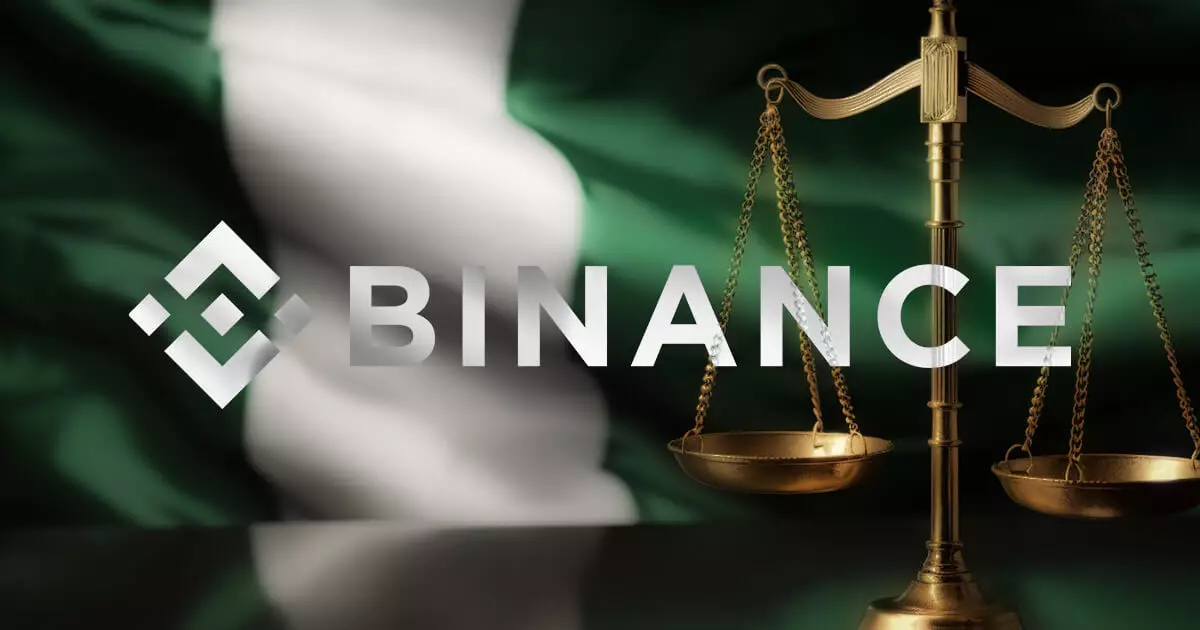In a striking development, Nigeria’s Federal Inland Revenue Service (FIRS) has initiated legal proceedings against Binance Holdings Limited, demanding an unprecedented amount exceeding $81 billion in unpaid taxes and associated penalties. This figure has sent shockwaves through the cryptocurrency community, marking a significant escalation in regulatory efforts against crypto firms operating in the African nation. The current claim could reshape the landscape for cryptocurrency taxation not just in Nigeria but potentially worldwide.
According to reports from local media outlets, the tax claim encompasses approximately $79.5 billion attributed to economic damages incurred by the Nigerian economy, alongside a more modest amount of N231 million (around $153,223) linked directly to Binance’s operational activities. Furthermore, the FIRS is pursuing nearly $2 billion in past due income tax for both the years 2022 and 2023. This demand dwarfs the $4.3 billion penalty chapter faced by Binance from U.S. regulators last year, highlighting the severity of the allegations against Binance.
The FIRS contends that Binance has not only neglected to declare its activities in Nigeria but has also reaped substantial benefits from a burgeoning user base in the country. The agency alleges that these actions constitute violations of both the Companies Income Tax (CIT) Act and the Significant Economic Presence (SEP) Order, which mandates that any foreign business generating significant income from Nigerian consumers must comply with local tax obligations. Specifically, Binance is accused of earning a staggering $35.4 million in net revenue from a trade volume exceeding $21.6 billion for the year 2023 alone.
The legal pursuit outlines a 10% penalty for tax evasion and an interest charge of 26.75% applicable from January 1, 2023, through January 1, 2024. The gravity of these financial penalties underscores the FIRS’s commitment to enforcing compliance and signals a potentially tough road ahead for Binance in Nigeria.
This lawsuit typifies Nigeria’s intensified crackdown on cryptocurrency operations, advocating a robust regulatory framework that holds foreign entities accountable for their financial practices within the country. The allegations also touch on broader themes of economic harm and regulatory oversight, highlighting concerns over unauthorized financial services and failures to adhere to anti-money laundering regulations. Such issues have sparked conversations regarding the impact of non-compliance on Nigeria’s economic stability.
The situation has become even more complicated with the withdrawal of previous charges against Binance executive Tigran Gambaryan, who has made allegations of corruption within Nigerian governmental circles. Gambaryan’s claims suggest that the actions against Binance may serve as a diversion from deeper internal issues facing the Nigerian economy. However, officials have dismissed these claims, branding them as unfounded and unsubstantiated, further complicating the narrative surrounding this legal battle.
As Nigeria pursues this landmark lawsuit against Binance, the outcome could have far-reaching repercussions for cryptocurrency regulations in Africa and beyond. The case not only accentuates the often tumultuous relationship between regulatory bodies and digital currency entities but also raises pressing questions regarding compliance, accountability, and the future of cryptocurrency operations in markets where regulatory clarity remains elusive. Stakeholders within the crypto sphere will undoubtedly be watching closely as this saga unfolds, keen to glean insights on how regulatory frameworks may evolve in response to such high-stakes confrontations.


Leave a Reply